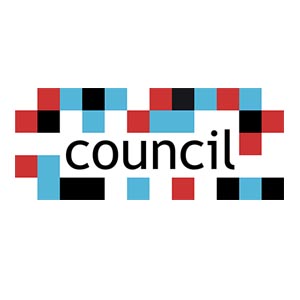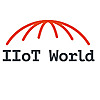The EU-funded research and innovation projects RAINBOW, PLEDGER and MORPHEMIC, are hosting a session under the prestigious European Big Data Value Forum. The European Big Data Value Forum is a major ICT event in Europe that brings together big industry, technology professionals, business developers, researchers and policy-makers and attracts a large number of visitors. This year, the event will take place in Prague, Czech Republic on November 21-23, 2022 with a central theme of “At the Heart of the Ecosystem for Data and AI.” The EBDVF 2022 is organized by the Big Data Value Association (BDVA), IT4Innovations (VSB – Technical University of Ostrava), Plan4all and Charles University in Prague in collaboration with the European Commission (DG CNECT) and has been granted with the Czech Republic Presidency Auspice.
The session, which is titled “Next-generation platforms for Europe’s Cloud continuum” and targets the Technology, Platforms and Impact track, will be held physically in Prague on November 23, 2022 from 10:00am-11:00am CET. It consists of a live discussion panel by prominent experts from academia and industry, which will share with the audience the latest developments and results of bleeding-edge cases utilizing next-generation cloud technologies developed in the EU. The panel’s main goal is to highlight the opportunities for the EU innovation landscape offered by the next-generation solutions developed by the 3 projects and to illustrate how the latest Edge/Fog/Cloud Continuum developments can strengthen EU competitiveness.
EBDVF Panellists
- George Pallis, Associate Professor Computer Science Department, University of Cyprus
- Stefanos Venios, Project manager, Suite5 Data Intelligence Solutions, Cyprus
- Olga Segou, Senior Research and Innovation Development Specialist, NetCompany-Intrasoft, Greece
- Geir Horn, Head of European ICT research, University of Oslo, Norway
- Alessandra Bagnato, Research Responsible at Softeam Software (Docaposte Groupe), France
EBDVF Moderator
- Vasileios Psomiadis / Senior Researcher, Data & Web Science Lab, Aristotle University of Thessaloniki, Greece
EBDVF Agenda
- Welcome & Introductions
- Current challenges and the solutions introduced by next-gen cloud-continuum platforms:
- Fog Computing for secure and advanced orchestration of IoT services and cross-cloud apps
- Paving the way for next-generation Edge Computing with enhanced experience and QoS
- Heterogeneous multi-cloud deployments in distributed environments
- The impact of next-gen cloud platforms in demanding contemporary applications
- Conclusions & Key takeaways
Additional information as well as registration details are available through the official EBDVF 2022 website: https://european-big-data-value-forum.eu
About the participating projects
RAINBOW (https://rainbow-h2020.eu)
The vision of RAINBOW is to design and develop an open and trusted fog computing platform that facilitates the deployment and management of scalable, heterogeneous and secure IoT services and cross-cloud applications (i.e., microservices). RAINBOW falls within the bigger vision of delivering a platform enabling users to remotely control the infrastructure that is running, potentially, on hundreds of edge devices (e.g., wearables), thousands of fog nodes in a factory building or flying in the sky (e.g., drones), and millions of vehicles travelling in a certain area or across Europe. RAINBOW aspires to enable fog computing to reach its true potential by providing the deployment, orchestration, network fabric and data management for scalable and secure edge applications, addressing the need to timely process the ever-increasing amount of data continuously gathered from heterogeneous IoT devices and appliances. The developed solution will provide significant benefits for popular cloud platforms, fog middleware, and distributed data management engines, and will extend the open-source ecosystem by pushing intelligence to the network edge while also ensuring security and privacy primitives across the device-fog-cloud-application stack.
RAINBOW has received funding from the European Union’s Horizon 2020 framework program for research and innovation under grant agreement No. 871403.
PLEDGER (http://www.pledger-project.eu)
The Pledger project aims to deliver a new architectural paradigm and a toolset that will pave the way for next generation edge computing infrastructures, tackling the modern challenges faced today and coupling the benefits of low latencies on the edge, with the robustness and resilience of cloud infrastructures. The project will deliver a set of tools and processes that will enable a) edge computing providers to enhance the stability and performance effectiveness of their edge infrastructures, through modelling the overheads and optimal groupings of concurrently running services, runtime analysis and adaptation, thus gaining a competitive advantage b) edge computing adopters to understand the computational nature of their applications, investigate abstracted and understandable QoS metrics, facilitate trust and smart contracting over their infrastructures and identify how they can balance their cost and performance to optimize their competitiveness and monitor their SLAs. By providing this toolset, the project will also allow third parties to act as independent validators of QoS features in IoT applications, enabling new decentralized applications and business models, thus filling a large gap in the emerging edge/IoT computing market landscape.
PLEDGER has received funding from the European Union’s Horizon 2020 framework program for research and innovation under grant agreement No. 871536.
MORPHEMIC (https://www.morphemic.cloud)
The MORPHEMIC project aims at optimising the deployment and life-cycle management of data-intensive applications in the cloud-computing continuum. With the MORPHEMIC approach, the initial deployment of cloud application components is performed and then proactively scaled according to the incoming workload and the defined service level objectives on forecasted metrics about usage and workload level. MORPHEMIC solution is an extension of MELODIC, multi-cloud platform developed as the H2020 project, and it introduces two novel concepts to it: polymorphing architecture that allows for dynamic adaptation of the architecture of application to the current workload and proactive adaptation that enables the reconfiguring of the application based on the forecasted metrics about usage and workload level. MORPHEMIC, funded by the European Union’s Horizon 2020 Research and Innovation program, began in January 2020 and is going to last until the end of June 2023. In the work on the project involved are 12 partners, from 7 countries, belonging to both the academic and the industrial world.
MORPHEMIC has received funding from the European Union’s Horizon 2020 framework program for research and innovation under grant agreement No. 871643.





 More Articles
More Articles










